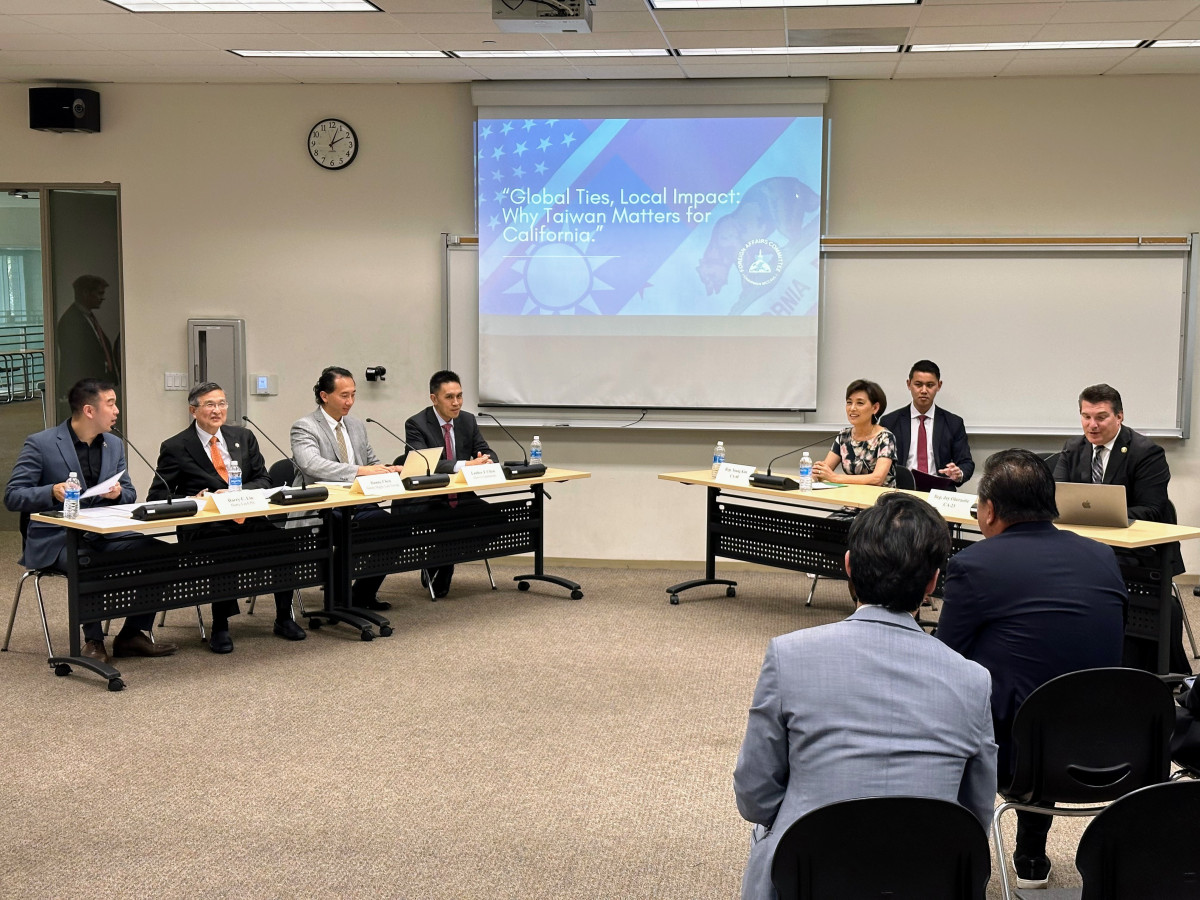Taiwan is critical to the global economy, and its defense is a “here and now” issue, US Representative Young Kim said during a roundtable talk on Taiwan-US relations on Friday.
Kim, who serves on the US House of Representatives’ Foreign Affairs Committee, held a roundtable talk titled “Global Ties, Local Impact: Why Taiwan Matters for California,” at Santiago Canyon College in Orange County, California.
“Despite its small size and long distance from us, Taiwan’s cultural and economic importance is felt across our communities,” Kim said during her opening remarks.
Stanford University researcher and lecturer Lanhee Chen (陳仁宜), Certified Public Accountant Harry Lin (林清吉) and US Representative Jay Obernolte also attended the talk.
“Taiwanese have been calling Southern California their home for decades, starting businesses, creating jobs and building strong communities,” Kim said.
“As chairwoman of the [US] House [of Representatives] Foreign Affairs Indo-Pacific Subcommittee, Taiwan has been a focal point of our work,” she said.
Despite being governed democratically by Taiwanese, the nation faces constant economic and military coercion from the Chinese Communist Party, she said.
The Chinese military holds regular drills around the Taiwan Strait, apparently as preparation for a military conflict or blockade of Taiwan, she said.
“Although 7,000 miles [11,265km] away, Taiwan is not an ‘over there’ problem,” she said. “Some estimates suggest that a Chinese invasion of Taiwan would cost the global economy US$10 trillion — a larger impact than the 2008 Great Recession and the COVID-19 pandemic.”
As a high-tech economy, California in particular would be affected negatively by a Chinese invasion of Taiwan, she said, adding that comments by Chinese President Xi Jinping (習近平) suggest such an invasion is possible by as soon as 2027.
Kim said that during a previous visit to Taiwan, she asked a representative of Taiwan Semiconductor Manufacturing Co what would happen if Taiwan were to be blockaded by China, and was told that the global economy would shut down.
Taiwan is the origin of more than 90 percent of the world’s advanced semiconductors, which are used in many products, including mobile phones, TVs, microwave ovens and cars, used daily by US citizens, she said.
“Foreign policy is not something that only concerns Washington DC — it concerns every American,” she said.
Kim said she has expressed support for Taiwan’s participation in international organizations, including the WHO and the IMF, and has urged the US government to ensure that weapons purchased by Taiwan were delivered on time.
Taiwan pays billions of dollars for weapons, which the US must continue to provide it with, according to the stipulations of its Taiwan Relations Act, she said.




